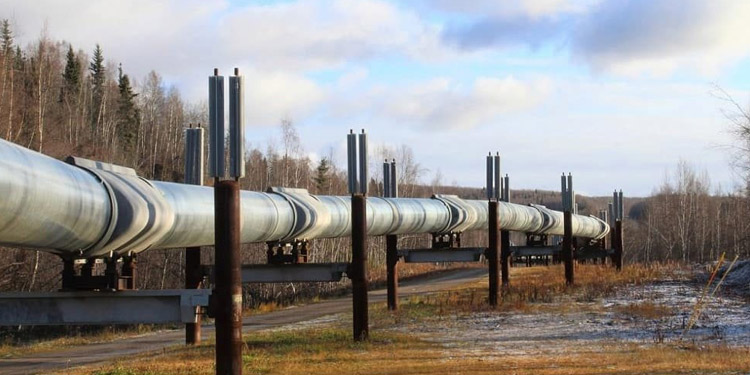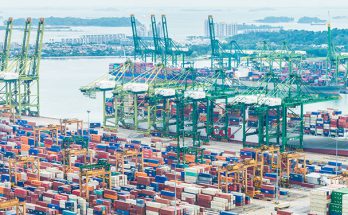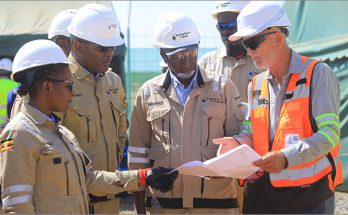 Uganda is expected to become a major crude producer and exporter thanks to agreements signed between Uganda and Tanzania, as well as oil companies Total and China National Offshore Oil Corporation (CNOOC).
Uganda is expected to become a major crude producer and exporter thanks to agreements signed between Uganda and Tanzania, as well as oil companies Total and China National Offshore Oil Corporation (CNOOC).
The East African Crude Oil Pipeline ( EACOP) project agreement, signed by Ugandan President Yoweri Museveni and Tanzanian President Samia Hassan Suluhu, paves the way for the construction of a 1,440-kilometer crude oil pipeline connecting Uganda’s Albertine area to Tanzania’s Tanga seaport.
“Both parties have signed the EACOP Tripartite Project Agreement […] for the good of all Ugandans and Tanzanians, in the spirit of East Africa,” Ugandan Foreign Minister Sam Kutessa said. According to the agreements, oil firms must grant at least 30% of project-related contracts to local Ugandan suppliers, the oil will be partially refined in Uganda to supply the local market, and Uganda will pay Tanzania $12.20 per barrel flowing through the pipeline. The signatories have agreed to invest in infrastructure that will help Uganda’s landlocked country export and ship crude oil to international markets.
The 1,445-kilometer heated pipeline will run from Uganda’s Albertine Graben Region to Tanga, Tanzania’s Indian Ocean seaport, where it will be shipped to foreign markets. The crude contained in Uganda is extremely viscous, requiring heat to flow. Total, which has a significant stake in the pipeline project, has stated that the EACOP may be the world’s longest electricity-heated crude oil pipeline.
“It’s a very big growth, one of the largest that will be built on this continent,” said Total CEO Patrick Pouyanne, referring to the signing of the pacts as a historic landmark for the development project, which will attract more than $10 billion in investment.
The agreement’s signing is just the start of a phase that will see oil flow in early 2025. The Kingfisher Field, operated by CNOOC, and the Tilenga Field, operated by Total, will both be used for extraction near Lake Albert. The projects’ combined production is estimated to hit a peak of 230,000 barrels per day (bpd). President Suluhu stated that the project is expected to generate more than 10,000 direct and indirect jobs, indicating that there are high expectations for job growth and long-term income. According to the World Bank, peak oil production in the area could earn Uganda up to $3.5 billion by 2030.
In response to resistance from environmentalists who argue that the project will threaten sensitive ecosystems along its route, including wildlife reserves and water catchment areas for Lake Victoria, Total has stated that it will limit oil extraction from the Murchison Falls National Park, Uganda’s largest protected area, to less than 1% of the area and fund a 50% increase in the number of rangers in the reserve. Both partners have pledged to carry out these projects in an exemplary manner, taking into account biodiversity and the environment, as well as the rights of local communities, while adhering to the International Finance Corporation’s strict environmental and social performance criteria (IFC).
Pouyanne commented that the Tilenga development and the EACOP pipeline are, “consistent with [Total’s] strategy to focus on low breakeven oil projects while lowering the average carbon intensity of the group’s upstream portfolio,” adding that the projects will create significant in-country value for both Uganda and Tanzania, as well as the company’s commitment to implement these projects in a fully transparent manner.
In 2006, Uganda discovered oil deposits in the Albertine Graben Rift, which is located in the Albert basin. The total reserves are estimated to be 6 million barrels by government geologists. Following Tullow’s withdrawal from Uganda in mid-November, Total and CNOOC acquired control of the country’s oil fields. The Ugandan Project is not the only African project coming to fruition for Total, with its giant Mozambique LNG Project targeted for completion in 2024. The company also has projects planned in Angola and Nigeria over the next few years.



